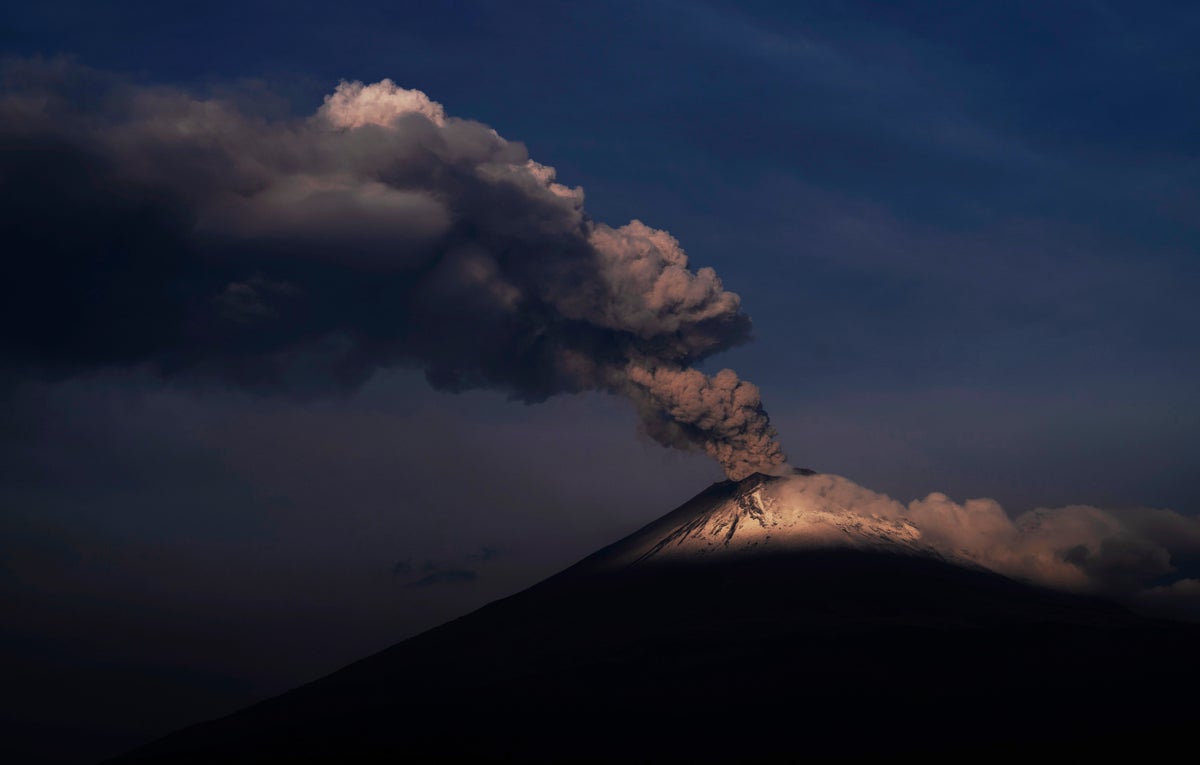
Just a few hours from one of the world's largest cities, the Popocatepetl volcano has been coating nearby towns with ash and disrupting flights at Mexico City's airport this week.
Hundreds of explosions have spit lava from the snow-tipped peak of the 17,797-foot Popocatepetl (puh-puh-ka-TEH-pet-tl), threatening to upend the daily lives of the some 25 million people who live within 60 miles of the mountain. While a massive eruption doesn't appear imminent, eruptions are likely to continue in the coming days.
What is happening with the volcano?
Pre-Hispanic writings indicate intense activity at Popocatépetl at the beginning of the 16th century, and scientists at Mexico’s prestigious National Autonomous University (UNAM) have been tracking the volcano’s movements since a surge of activity began in 1994.
In Guatemala, the Volcano of Fire claimed the lives of hundreds of people in a 2018 eruption. It has recently prompted evacuations for heightened activity as well. The Mexican volcano known as “Popo” has had periods of intense activity between 2000 and 2003, and again between 2012 and 2016. In 2000, that activity triggered a red alert and evacuations before the volcano calmed down again.
In the past weeks, the volcano entered another one of those periods. With the volcano spewing ash, gas and lava, authorities have increased the alert to yellow, the second level on a stoplight-style scale, but not yet to red.
Is a major eruption imminent?
Scientists and Mexican authorities say there's no sign that the current waves of small eruptions will turn into anything more destructive. Servando de la Cruz Reyna, a senior geophysics researcher at the UNAM, said that is there “nothing new or surprising" about recent movements.
“The probability that this continues as it has previously is far higher than the probability that this grows to much higher levels,” he said.
Popocatépetl has been active for a half-million years. Its last major eruption happened more than a thousand years ago.
What is the government doing in response?
Authorities have closed schools in dozens of municipalities across three states, put troops on alert, prepared shelters and carried out evacuation drills. Other than that, they are encouraging people to remain calm.
On Monday, Mexican President Andrés Manuel López Obrador said in his morning briefing that “the movements of the volcano are being monitored 24 hours a day.”
What will happen next?
Popocatepetl’s recent activity is not necessarily a bad thing, Robin Campion, a volcanologist at the Institute of Geophysics, said. The scientist explained that small explosions alleviate pressure from magma inside the mountain, and likely mean that it won’t lead to a buildup and larger eruption.
“The good thing is that … it’s constantly releasing energy,” Campion said. “Hopefully, it’ll continue being as constant and moderate as it is, so it doesn’t all erupt at once, like it did in prehistoric times.”
As it continues puffing, ash could eventually become a problem in surrounding areas, particularly in the 7.5 miles surrounding the volcano, but also in Mexico City.
While the ash is not toxic, Valdés, head of the UNAM’s National Seismological Service, said it could affect breathing and air quality, and also continue to affect flights to and from Mexico City’s international airport.
While the ash continues to billow toward southern Mexico, he and other scientists monitoring the volcano expect winds to shift and blow ash into the capital in June.
Already on Saturday, volcanic ash carried in by shifting winds forced the city’s airport to temporarily shut down. Others expressed worries that the weight of ash building up could collapse precariously constructed homes in poorer areas of Mexico.
He and other scientists recommended residents wash their eyes and wear face masks.
“It has had important consequences,” he said. “The only danger we’re really entertaining right now is the ash. People shouldn’t be scared, more than anything they should take precautions.”







